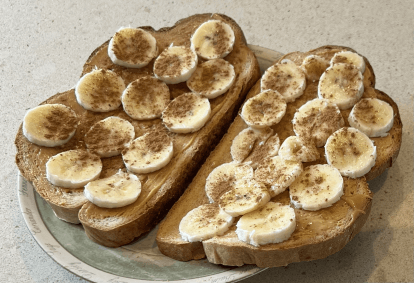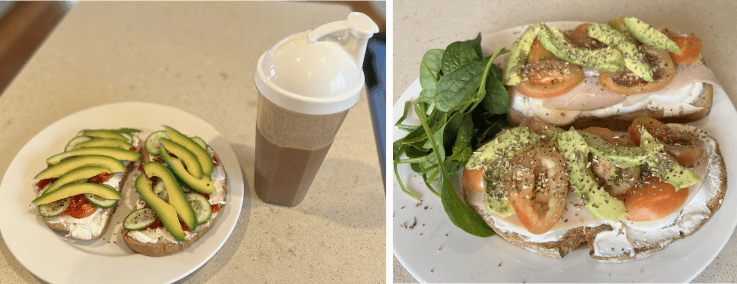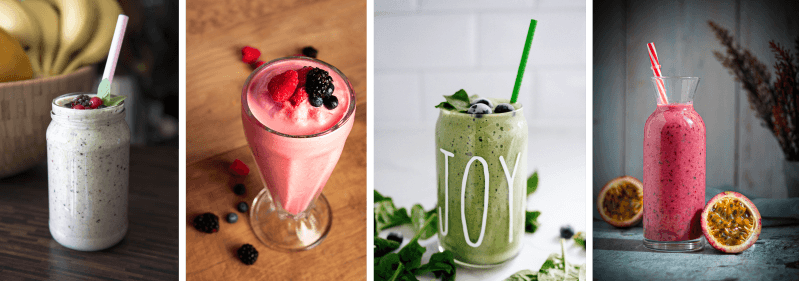Should You Eat Before Exercise?
Fuel Your Workout with Pre-Exercise Nutrition
The question of should you eat before exercise is a common one, and the answer largely depends on your individual goals and preferences.
For some people, eating before a workout can provide the necessary fuel and energy to perform at their best. Consuming a balanced meal or snack before exercise can help maintain blood sugar levels, prevent dizziness or lightheadedness, and enhance overall performance. This is especially important for longer, more intense workouts or endurance activities.
On the other hand, some individuals may prefer to exercise on an empty stomach, particularly if their goal is weight loss. Fasted workouts, where you exercise in a fasted state, have gained popularity in recent years. The theory behind this approach is that exercising on an empty stomach can tap into stored fat as a source of energy, potentially aiding in weight loss. However, it's important to note that the research on fasted workouts and their impact on weight loss is still inconclusive.
Ultimately, the decision of whether to eat before exercise should be based on your personal preferences, goals, and how your body responds. It's essential to listen to your body and experiment with different approaches to find what works best for you. If you choose to eat before a workout, opt for a light, easily digestible meal or snack that includes a combination of carbohydrates and protein. This can provide the necessary energy and help with muscle recovery post-workout.
Remember, everyone is different, and what works for one person may not work for another.
For me, it depends on what time of the day I'm working out. Typically, I prefer to work out mid-morning on an empty stomach. I make sure to have plenty of complex carbohydrate foods the night before. If I'm working out in the afternoon, I'll have a light breakfast that consists of a combination of carbohydrates, some protein and a small amount of fats.
What foods should you eat before exercise?
When it comes to choosing foods to eat before exercise, it's important to focus on options that provide a good balance of carbohydrates, protein, and healthy fats. Here are some examples of pre-workout foods I enjoy having. These foods may also be eaten as a post-workout snack or meal. Just add extra protein.
These foods can fuel your body and enhance your performance:
Sourdough or whole grain toast with nut butter and banana
I usually have two slices of sourdough bread, spread nut butter and sliced banana with a sprinkle of cinnamon on top. This combination provides a mix of carbohydrates for energy and healthy fats and protein for sustained fuel.
If you want to turn this snack into a post-work snack or meal, add a protein shake.

Sourdough toast with egg and cottage cheese
Another one of my go-to pre-workout options is sourdough toast with egg and low-fat cottage cheese. I'll also add tomato and avocado.
To transform this snack into a post-work meal, I'll include sliced turkey breast and a protein shake to boost its protein content.

Greek yogurt with berries
Greek yogurt is rich in protein, while berries offer antioxidants and carbohydrates for energy.
For extra protein, add a scoop of protein powder and mix it in with the yoghurt before adding the fruit.
Porridge or oatmeal with a scoop of protein powder
Porridge, also known as oatmeal, is a great source of complex carbohydrates, and adding protein powder can further enhance muscle recovery.
Smoothie with fruits, vegetables, and protein
Blend together a mix of fruits, leafy greens, and a scoop of protein powder for a nutrient-packed pre-workout drink.
Check out nutrition and healthy weight loss smoothies for over 100 smoothie recipes.

Chicken, turkey or smoked salmon wrap
Add your choice of lean protein with a mix of vegetables. This option provides lean protein and complex carbohydrates for sustained energy.
Quinoa salad with vegetables and grilled chicken or smoked salmon
Quinoa is a complete protein, and paired with vegetables and lean protein, it makes for a satisfying pre-workout meal. If you don't like quinoa, add legumes or just stick with a basic salad with grilled chicken or smoked salmon.
How long should you eat before exercise?
The timing of your pre-workout meal or snack is crucial to ensure proper digestion and avoid discomfort during exercise. Ideally, you should aim to eat a balanced meal or snack about 1-3 hours before your workout.
Additionally, stay hydrated by drinking water before, during, and after your workout to maintain optimal performance.
Here's a breakdown of the recommended timing based on the size and composition of your pre-workout meal:
Small snack
If you're having a small snack, such as a piece of fruit or a handful of nuts, aim to eat it about 30 minutes to an hour before your workout. These types of snacks are easily digestible and can provide a quick source of energy.
Light meal
If you're having a light meal, such as a smoothie or a small sandwich, try to eat it 1-2 hours before your workout. This will give your body enough time to digest the food and provide you with sustained energy during your exercise session.
Larger meal
If you're having a larger meal, such as a chicken and vegetable stir-fry or a quinoa salad, it's best to eat it 2-3 hours before your workout. This will allow for proper digestion and minimise the risk of experiencing discomfort or cramping during exercise.
Keep in mind that these are general guidelines, and individual preferences and tolerances may vary. It's important to listen to your body and experiment with different timing options to find what works best for you. If you're unsure about the timing or have specific dietary needs, consulting with a registered dietitian or nutrition coach can provide personalised guidance based on your goals and requirements.